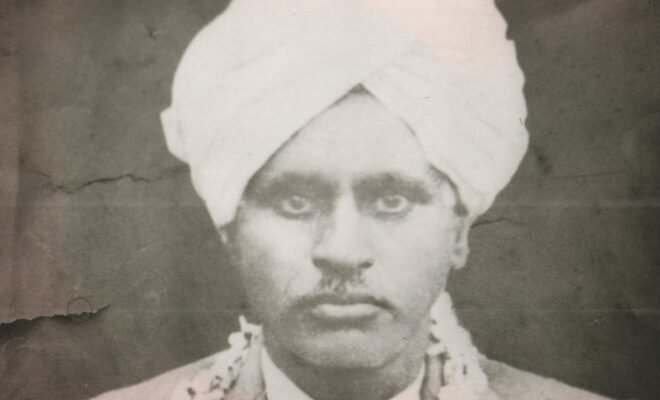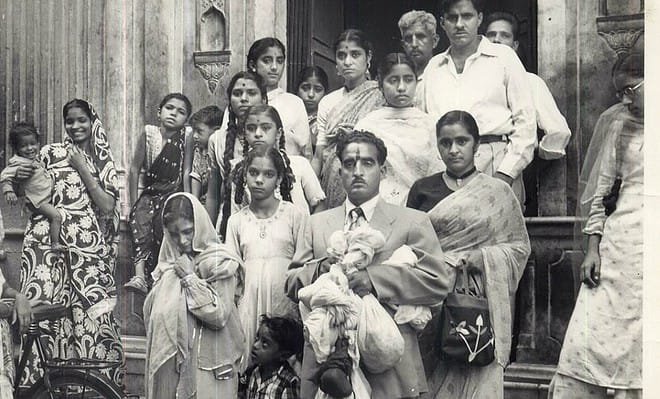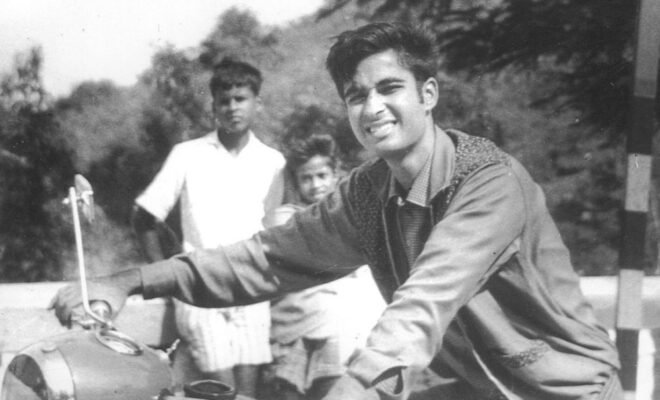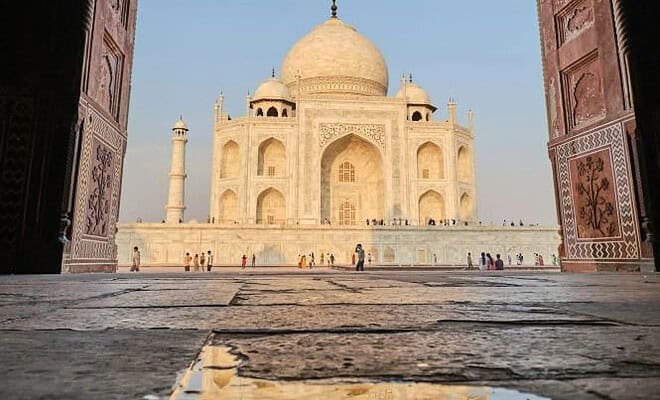The Education Trail

“Good grades lead to scholarships for higher education. A meaningful degree leads to well-paying jobs with opportunities to advance.” This message is drummed incessantly by Grandfather. His children picked up the refrain and beat it into their children (i.e., my generation). We continued the tradition.
After their mother’s passing, grandfather demanded all his children finish high school and advance to higher education. It was the only way to improve the family’s financial situation. His foresight was they would do well with solid degrees trailing behind their names and well-established credentials. He watched them as they studied hard and received excellent grades. The family has been following his advice for the last five generations.
Grandfather handled his five children in his extended family: his younger brother, Shambu Nath, and two sisters. The sisters were married and no longer his direct obligation. However, indirect onus continues, per traditions of the ancient joint family system. One of his sisters is our Tulsi Bhua, who lived with us in Delhi for a little while.
Daddy has three older brothers and one older sister. Grandfather, a low-paid post-office clerk, enjoyed chess. He was familiar with several strategies which he used as needed, and couldn’t wait for his children to grow up and determine their path in life. Even as they grew, he chalked out a career path for each, based on their natural proclivities, performance at school, and meager financial means.
Being in the post office, grandfather could secure an apprenticeship for his oldest son, our uncle, Har Narain. He is tall, athletic, good-looking, and excels at chess, with its complex approaches and tactics. He also developed a fondness for bridge, which became his passion later in life.
Getting a son into the workforce is not sufficient. Grandfather’s favorite, oft-repeated words are, “Keep looking ahead, learn what it takes to get there.” He insisted Har Narain undergo extra training and further education to advance himself. It’s more of a directive from a father than an insistence. Har Narain rose through the ranks, retired, and spent his retirement years playing bridge at the Officers’ Club. Rumor had it he makes more money at the game than his retirement pension.
Har Narain reveled in his children and his siblings’ children. He posed riddles to Sudhir and me during his visits to Delhi. We cheerily surprised him by jumping and yelling all the answers. Uncle casted an accusing eye at Daddy for borrowing from his childhood. He had played brainteasers with his baby brother. Daddy kept up the tradition and replayed all his childhood fun posers with us.
Next in line is our uncle, Sham Narain. Grandfather afforded him the luxury of attending college full time for a degree in commerce. He landed an entry-level position in the State Bank of India. With his nose to the grindstone, he advanced and rose by sheer diligence and hard work. Uncle is quiet, hen-pecked by his overbearing wife, and learned to hold his peace. Their children rebelled against their mother. The daughters sought meaningful education and careers of their choosing, and the older son shocked the family by insisting on meeting the young woman chosen to be his bride–utterly scandalous per the day and age in small-town India.
Daddy’s sister, our Kaushalya auntie, defied her sister-in-law’s domineering attitude towards her, and was labeled an ingrate. Daddy was her darling. She once told me she still saw the little preschooler in Daddy running barefoot.
A vivid memory of Sham Narain was when he came to Delhi on a short-term assignment. Uncle had lived with us for a few months, and we were in for an unforgettable treat! Every Friday evening, after work, he rounded up Sudhir, me, and Kaushalya’s auntie’s children, Sucharita, Nalin and Madhu. Herding us onto public transportation, we headed to Nirula’s Cafeteria in Connaught Place. It is a true cafeteria style restaurant. We start at one end, with a tray, and then slide it along the counter, picking up goodies. We had one rule to follow; eat everything we put on the tray. Wasted food is like squandered money. We gave Uncle a vigorous nod, no problem at all.
We loaded our trays with savory dosas (rice pancakes), sweet spongy rasgullas (cheese balls in light syrup), samosas, other tid-bits, and a cup of tea. Mummy does not let us have tea at home, so we rarely missed an opportunity to sip and savor it in style–from a teacup with a saucer underneath. After we had stuffed ourselves, we walked back home. Uncle believed in “after-dinner, walk a mile.” The fresh air and exercise does our over-satiated tummies good.
All good things come to an end. The five of us were miserable to see Uncle leave at the end of his assignment.
Daddy once told Sudhir and me, Karam Narain was always interested in construction. It fascinated him with building bridges and dams. He excelled in math and science, receiving top grades. Uncle entered high school, and Grandfather pegged engineering for him. By that time, Grandfather had advanced in his career to cover the higher engineering fees along with scholarships. Thompson Engineering College in Roorkee granted him a scholarship to pursue Civil Engineering. I was enraptured by a class picture of Uncle from his college days. His son, Vijay, found it while surfing the internet searching for family history. I noted his shabby attire compared to his fellow students. They dressed for the photographer (jackets and ties), except my uncle. I guess the family was still poor.
And then it is Daddy’s turn! Grandfather decided the family needed a medical presence. So, Daddy enrolled in King Edward Medical College in Lahore, the second oldest college in SE Asia-Daddy graduated in 1938. The medical school is now a university, and its online archives carry graduating information from its beginning. I have downloaded the 1938 graduating class–and Daddy‘s name is on it.
Daddy loved talking about his med school days and the antics of some students. A handful of students came from super-rich Nawabi families. They were least interested in studying, or even graduating. These “professional” students stay enrolled for years, repeating each class a few times! A few appeared to be already practicing medicine with private clinics established in town. The students didn’t know who their patients were, but they showed off their names with tailing degrees (not yet awarded) at the clinic entrance. Actual doctors, specifically hired for this purpose, attended the patients who enter those doors. Its illegal to masquerade as bona fide medical doctors, but with no authoritative oversight, no one cared.
Tulsi Bhua was pleased Daddy would be a doctor, but she wouldn’t let him enter the kitchen. She considered him defiled, since he dealt with dead bodies all day.
Grandfather had envisioned continuing his only daughter’s education well beyond school. He wished her to mature into an educated, modern young lady, to be self-sufficient and independent to some extent. Auntie was fond of studying and loved school. She was also being trained in household matters, mostly by Mrs. Sham Narain.
The outspoken Mrs. Sham Narain blatantly favored boys. Girls are nothing more than a lifelong wealth drain. Their family must provide them with handsome (think impoverishing) dowries to tempt young men so parents could off-load their daughters.
I remember Mrs. Sham Narain was annoyed at Daddy because he brought me to her son’s wedding (the same who wanted to meet his bride before marrying her.) Her expectation was bringing my brother, Sudhir, so he could ride on the ceremonial horse behind the groom, but Daddy showed up with an eight-year-old girl in tow. She let him have a piece of her mind. He was spoiling a girl rotten by bringing her to enjoy a wedding. Daddy heard her out with his head bowed. I was standing next to him and looked up to see his reaction. Did I detect a little smirk at the corners of his mouth?
Her hen-pecked husband learned not to argue with her, simply responded with grunts. Kaushalya auntie, however, had a very rough time with her. Never one to take unwarranted criticism, Auntie gave back as good as she got. None of her older brothers silenced her, and neither did her father. Auntie knew they supported her, but were afraid to say anything. Auntie loved to study, and read, and knew the stories of the Mahabharata in great detail. Years later, I can still hear her soft voice as she narrated those bed-time tales to her youngest daughter, Madhu, cuddling next to her. I was envious.
However, when Auntie had to go from sixth to seventh grade, all hell broke loose. Massive criticism of our grandfather came hurling from every direction. He received sagacious counsel from his sisters and younger brother on the follies of educating a girl. Ignorance prevailed, even as they shared examples of educated women causing difficulties later in life. They criticized, and aired the endless list of problems educated women cause. Working outside the home, questioning their husband’s decisions, not obeying them, and even talking to other men-“toba, toba!”
Grandfather found it impossible to handle these societal and family pressures. Sadly, he gave in to this misogynistic, ‘sagacious’ advice. Auntie’s education came to a screeching halt. Her aunts took over her training in household activities and tried to drill submissiveness into her. Auntie rebelled and voiced her resentment in return to any tongue-lashing coming her way. As soon as auntie became eligible for marriage, they found her a groom.
In all this unholy warring, Auntie received support from one aunt, Grandfather’s younger brother, Shambu Nath’s wife, Jamuna Dai. Her life had been challenging. As a child, she contracted smallpox and survived it. However, it left her face pock-marked. She grew up into a tall, charming woman with a stately demeanor. The pock marks had faded but were still discernible. A gracious, large-hearted woman, I’m not sure by whom and how the marriage was arranged. Back then, elders arranged marriages based on friendship and dowry, considering nothing else. Shambu Nath resented her pock-marks and considered her unattractive. He would not go near her, rejecting his bride. The disfiguring pocks were a turnoff.
Our cousin Bholla, described it to me years later. Instead of wallowing in self-pity, this young woman modernized herself. She followed the latest fashions and colors. Dressing attractively, albeit modestly, she forced herself to be more outgoing. It took a while, but her husband noticed her with an admiring “not too bad!” It was only after all her subtle and not-so-subtle efforts, her three children were born.
Jamuna Dai took our aunt Kaushalya under her wing. A close relationship formed, lasting a lifetime. Jamuna Dai lovingly hosted a delightful engagement ceremony for the families. Auntie’s fiancé, Pyare Lal Kalra, is tall, well-built, and handsome. The two of them together make an attractive couple. He came from a large, business family. The marriage resulted in four children in quick succession-two daughters, a son, and one more daughter.
A peek into the future! All three daughters went on to med-school and graduated as MDs. Auntie smiled, held her head high as all the doddering naysayers who had halted her education, congratulated her. I wish grandfather could have seen this. They commissioned her son in the armed forces and he moved up to a full colonel. A fourth daughter arrives later, but that’s a story for another day.









